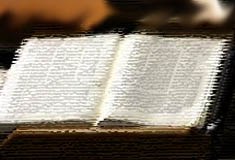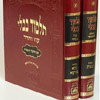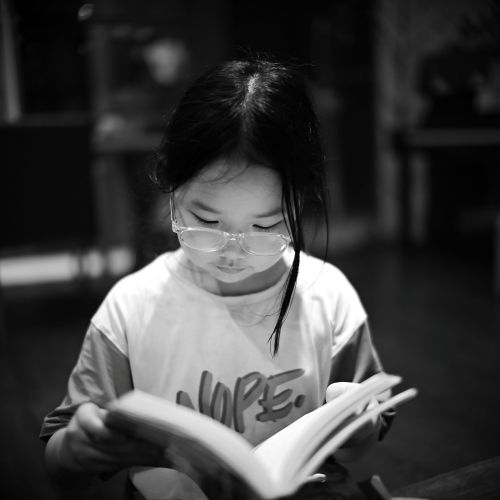“Asking for a Friend”: When a Question Must Be Asked in Person
הרב שי טחןכז סיוון, תשפה23/06/2025Yet within the halachic system, there is often room for nuance and flexibility
תגיות:שאלות לרבאמונהלימוד
It is told that once a man came to ask a halachic question to Rabbi Elyashiv zt”l. Apparently, the question was somewhat embarrassing, so before asking, he preempted by saying he was asking “for a friend.” Rav Elyashiv, with his sharp insight, responded, “If so, your friend could have come himself and said he is asking for a friend.”
told that once a man came to ask a halachic question to Rabbi Elyashiv zt”l. Apparently, the question was somewhat embarrassing, so before asking, he preempted by saying he was asking “for a friend.” Rav Elyashiv, with his sharp insight, responded, “If so, your friend could have come himself and said he is asking for a friend.”
While it is crucial to ask a rabbi whenever one is unsure of the halachic ruling, there are times when a question simply cannot be asked by proxy. The person involved must come and ask himself. Today we’ll try to explain why it’s so.
The opening mishnah in Pirkei Avot (1:1) begins with the words of the Anshei Knesset HaGedolah: “Be moderate in judgment” — meaning, one should not answer halachic questions hastily, but rather deliberate thoroughly and consider all relevant factors before responding.
Rabbeinu Yonah explains that this is a directive to moreh hora’ah (halachic authorities) and poskim. There is, however, a key distinction between a moreh hora’ah and a posek: the role of the moreh hora’ah is to guide people based on what is written in the Shulchan Aruch, following the rulings of established poskim. In contrast, the posek’s task is to examine all facets of the issue and render an original decision rooted in deep halachic analysis. Examples of poskim are the leading Torah sages of the generation, while morei hora’ah are rabbis who have received certification and ordination to guide the public in halachic practice.
At first glance, it would seem that the command to “be deliberate in judgment” applies primarily to the posek, whose responsibility is to rule after carefully reviewing all relevant sources. Indeed, the weight of issuing a decision faithful to the truth of Torah rests heavily on his shoulders. However, upon deeper reflection, we see that this directive applies equally—perhaps even more so—to the moreh hora’ah.
This is essential because the moreh hora’ah must not only possess a deep understanding of the halachic topic—with its various perspectives and the opinions of the Rishonim and Acharonim—but must also understand the person standing before him, who is seeking guidance. He must determine whether the straightforward halacha applies as is, or whether the unique circumstances of the questioner call for a different approach.
Even more so, given that nearly every area of halacha contains differing opinions and multiple possible rulings, the moreh hora’ah must be deeply familiar with all sides in order to evaluate whether this particular case warrants stringency or leniency.
Rabbi Yannai said: “If the Torah had been given in a single, cut-and-dried form, it would have had no lasting strength.” (Yerushalmi Sanhedrin 4:2).
The Pnei Moshe explains: “Had the Torah been given as a cut-and-dried law without room for interpretation in either direction, the world could not endure. The Torah must be subject to multiple interpretations. These and those are both the words of the living G-d.”
This teaching from the Yerushalmi beautifully clarifies our earlier point. If halacha had only one unyielding interpretation, the world could not function. Sometimes it is impossible to apply one uniform standard to all people and all situations. The Torah incorporates a range of legitimate outcomes and allows for nuance and flexibility. That is why one must know both the halacha in all its depth and the individual standing before him, and tailor the ruling accordingly.
This process is not trivial—it resembles a shidduch, which the Midrash compares to the splitting of the sea. If a rav issues a stringent ruling to someone who truly needs leniency, even if the ruling matches what is written in the Shulchan Aruch, he may have missed the truth. For this individual, halachic truth required leniency. And the reverse is equally true—a lenient ruling may be wrong if the individual before him required stringency.
This clarifies the words of Rabbeinu Yonah, who warns that a moreh hora’ah should not rely on his initial impression of a question, but must pause and examine it thoroughly and carefully, to avoid error in judgment. One might ask: if the halacha is unclear to him, why not simply open the Shulchan Aruch and the classic poskim and see what to rule? And if he cannot find the answer there, he can consult with other authorities to clarify the halacha.
Rabbeinu Yonah is teaching us the foundational principle discussed earlier: halacha is not applied rigidly or mechanically according to what is printed in the Shulchan Aruch alone. Rather, it must be adapted according to the context, the person, and the circumstances.
This also explains the commentary of the Bartenura on the same mishnah, “Be moderate in judgment”—that even if the same case has come before you once, twice, or three times, do not say, “This ruling is already known to me.” Rather, remain deliberate—wait before issuing judgment. But why should one wait if he already knows the halacha well? The answer is the same: while the plain halacha may be known to him, it can vary based on the individual asking, the timing, and the specific circumstances. This is the sacred task of the moreh hora’ah: to tailor the ruling accordingly.
This also explains why asking “for a friend” is often ineffective. It leaves the rabbi lacking a vital piece in issuing a proper halachic ruling. Even if he knows the halacha, he lacks knowledge of the person for whom the ruling must be shaped.
For example, if someone asks a question about monetary loss—say, whether a food must be declared non-kosher—it matters whether the person is in a financially stable situation or struggling. Without knowing the identity or details of the “friend,” the rabbi cannot evaluate whether leniency is warranted.
It is told of one well-known posek who authored a sefer on the laws of issur v’heter and brought it to Rav Moshe Feinstein to request a letter of approbation. Although Rav Moshe was known to generously give haskamot, in this case he declined. His reason: while the sefer was important and well-written, it rendered rulings in absolute terms without presenting the range of opinions in each halacha. As we’ve explained, such rigidity is problematic. A halachic authority must be aware of the full spectrum of opinions in order to rule appropriately for each questioner and situation.
To be clear: the halachic rulings found in the Shulchan Aruch and the classical works of the poskim are indeed binding. Yet within the halachic system, there is often room for nuance and flexibility. This is not a task for the average person, but rather a sacred responsibility given to those who have risen to the level of being crowned as decisors of halacha. Only they are authorized—and indeed obligated—to determine how the law should be applied.

While it is crucial to ask a rabbi whenever one is unsure of the halachic ruling, there are times when a question simply cannot be asked by proxy. The person involved must come and ask himself. Today we’ll try to explain why it’s so.
The opening mishnah in Pirkei Avot (1:1) begins with the words of the Anshei Knesset HaGedolah: “Be moderate in judgment” — meaning, one should not answer halachic questions hastily, but rather deliberate thoroughly and consider all relevant factors before responding.
Rabbeinu Yonah explains that this is a directive to moreh hora’ah (halachic authorities) and poskim. There is, however, a key distinction between a moreh hora’ah and a posek: the role of the moreh hora’ah is to guide people based on what is written in the Shulchan Aruch, following the rulings of established poskim. In contrast, the posek’s task is to examine all facets of the issue and render an original decision rooted in deep halachic analysis. Examples of poskim are the leading Torah sages of the generation, while morei hora’ah are rabbis who have received certification and ordination to guide the public in halachic practice.
At first glance, it would seem that the command to “be deliberate in judgment” applies primarily to the posek, whose responsibility is to rule after carefully reviewing all relevant sources. Indeed, the weight of issuing a decision faithful to the truth of Torah rests heavily on his shoulders. However, upon deeper reflection, we see that this directive applies equally—perhaps even more so—to the moreh hora’ah.
This is essential because the moreh hora’ah must not only possess a deep understanding of the halachic topic—with its various perspectives and the opinions of the Rishonim and Acharonim—but must also understand the person standing before him, who is seeking guidance. He must determine whether the straightforward halacha applies as is, or whether the unique circumstances of the questioner call for a different approach.
Even more so, given that nearly every area of halacha contains differing opinions and multiple possible rulings, the moreh hora’ah must be deeply familiar with all sides in order to evaluate whether this particular case warrants stringency or leniency.
Rabbi Yannai said: “If the Torah had been given in a single, cut-and-dried form, it would have had no lasting strength.” (Yerushalmi Sanhedrin 4:2).
The Pnei Moshe explains: “Had the Torah been given as a cut-and-dried law without room for interpretation in either direction, the world could not endure. The Torah must be subject to multiple interpretations. These and those are both the words of the living G-d.”
This teaching from the Yerushalmi beautifully clarifies our earlier point. If halacha had only one unyielding interpretation, the world could not function. Sometimes it is impossible to apply one uniform standard to all people and all situations. The Torah incorporates a range of legitimate outcomes and allows for nuance and flexibility. That is why one must know both the halacha in all its depth and the individual standing before him, and tailor the ruling accordingly.
This process is not trivial—it resembles a shidduch, which the Midrash compares to the splitting of the sea. If a rav issues a stringent ruling to someone who truly needs leniency, even if the ruling matches what is written in the Shulchan Aruch, he may have missed the truth. For this individual, halachic truth required leniency. And the reverse is equally true—a lenient ruling may be wrong if the individual before him required stringency.
This clarifies the words of Rabbeinu Yonah, who warns that a moreh hora’ah should not rely on his initial impression of a question, but must pause and examine it thoroughly and carefully, to avoid error in judgment. One might ask: if the halacha is unclear to him, why not simply open the Shulchan Aruch and the classic poskim and see what to rule? And if he cannot find the answer there, he can consult with other authorities to clarify the halacha.
Rabbeinu Yonah is teaching us the foundational principle discussed earlier: halacha is not applied rigidly or mechanically according to what is printed in the Shulchan Aruch alone. Rather, it must be adapted according to the context, the person, and the circumstances.
This also explains the commentary of the Bartenura on the same mishnah, “Be moderate in judgment”—that even if the same case has come before you once, twice, or three times, do not say, “This ruling is already known to me.” Rather, remain deliberate—wait before issuing judgment. But why should one wait if he already knows the halacha well? The answer is the same: while the plain halacha may be known to him, it can vary based on the individual asking, the timing, and the specific circumstances. This is the sacred task of the moreh hora’ah: to tailor the ruling accordingly.
This also explains why asking “for a friend” is often ineffective. It leaves the rabbi lacking a vital piece in issuing a proper halachic ruling. Even if he knows the halacha, he lacks knowledge of the person for whom the ruling must be shaped.
For example, if someone asks a question about monetary loss—say, whether a food must be declared non-kosher—it matters whether the person is in a financially stable situation or struggling. Without knowing the identity or details of the “friend,” the rabbi cannot evaluate whether leniency is warranted.
It is told of one well-known posek who authored a sefer on the laws of issur v’heter and brought it to Rav Moshe Feinstein to request a letter of approbation. Although Rav Moshe was known to generously give haskamot, in this case he declined. His reason: while the sefer was important and well-written, it rendered rulings in absolute terms without presenting the range of opinions in each halacha. As we’ve explained, such rigidity is problematic. A halachic authority must be aware of the full spectrum of opinions in order to rule appropriately for each questioner and situation.
To be clear: the halachic rulings found in the Shulchan Aruch and the classical works of the poskim are indeed binding. Yet within the halachic system, there is often room for nuance and flexibility. This is not a task for the average person, but rather a sacred responsibility given to those who have risen to the level of being crowned as decisors of halacha. Only they are authorized—and indeed obligated—to determine how the law should be applied.
הוסף תגובה
עוד מהרב שי טחן
עוד בנושא מחשבה








